… as a sociologist in 2025
- Zhe Dong’s paper in Prevention Science examines the stability and development of positive and negative leader profiles across control and intervention contexts. Positive leaders showed greater stability, while negative leaders were less stable and more likely to transition to the bullying profile. The KiVa anti-bullying program in the Netherlands helped transform negative leaders into positive leaders, highlighting the potential of universal preventive interventions.
- At the Night of Sociology, I gave a talk on sexual networking in schools: A Kind of ‘Sex Education’ in the North, drawing on data from PEAR (Peers and the Emergence of Adolescent Romance).
… as a sociologist in 2024
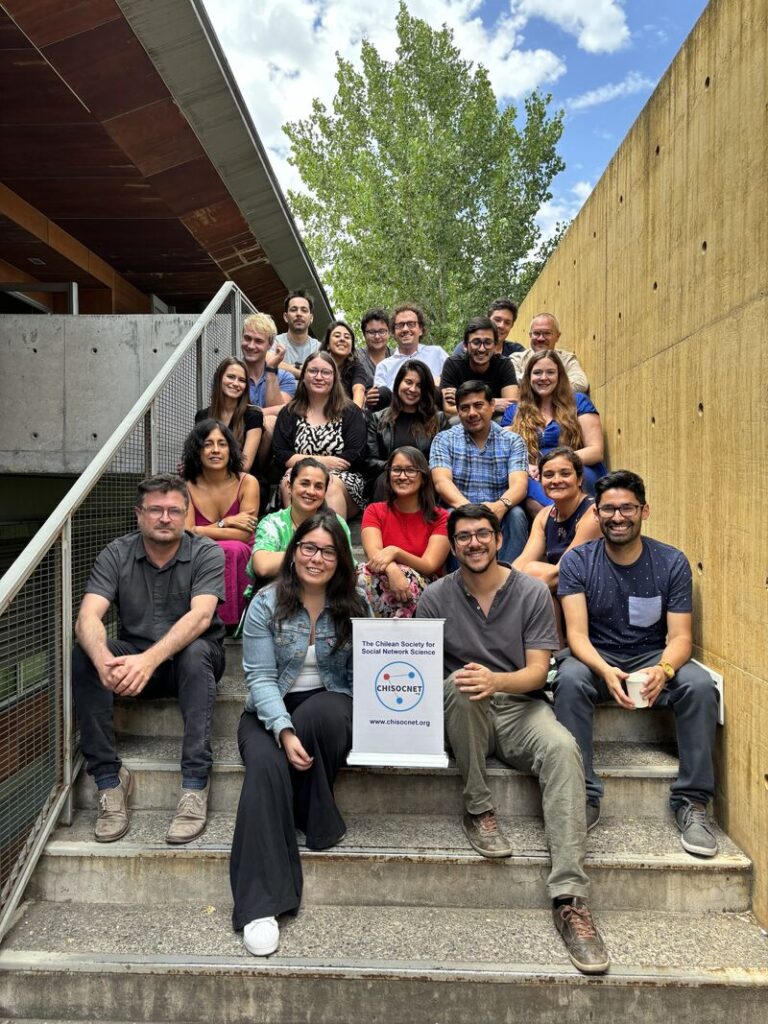
- The Royal Netherlands Academy of Arts and Sciences (KNAW) has appointed me as a member of the Academy. Members of the KNAW, prominent academics from all disciplines, are elected on the basis of their academic achievements. The KNAW has about 600 members. Membership is for life.
- I was honored to be invited to be a keynote speaker at ISSBD 2024 in Lisbon, hosted by António J. Santos and Manuela Verissimo. Sharing my work felt like a rewarding new inaugural lecture. My keynote on social networks and peer-led interventions will be published in the International Journal of Behavioral Development in 2025.
- Diego Palacios received a FONDECYT grant for his project titled It takes two for substance use: Peer mechanisms in adolescents’ substance use and invited me to be the keynote speaker at the first Chilean Summer School about Social Network Research. A good reason to visit this wonderful country and go hiking in Santuario El Cañi, Valdivian Coastal Reserve, Alerce Andino, Chiloé, Queulat, Torres del Paine, and Tierra del Fuego and visit the Termas Geométricas near Pucón and the Termas Ventisquero in Puyuhuapi. In addition, Francisca Ortiz-Ruiz invited me to be a guest on her podcast, Knitting Networks.
- Xingna Qin defended her PhD thesis successfully. Her paper in the Journal of Early Adolescence provides insights into friendship dynamics among Chinese adolescents, highlighting their preference for high-achieving and prosocial friends while avoiding aggressive peers. This study also found that parental influence on adolescent friendship selection is limited in China, suggesting that encouraging parental intervention may not be effective.
- Sofie Lorijn successfully defended her PhD thesis, which focuses on the transition from primary to secondary school. Her study in the Journal of Youth and Adolescence shows that students tend to become more attached to their peers, experience less loneliness, and remain relatively unchanged in terms of victimization after the transition. Teachers can allay students’ concerns about transitions by emphasizing these social benefits. Dieuwke Zwier, the other PRIMS PhD student, defended her PhD thesis at the University of Amsterdam. She received her degree cum laude.
- Simon Venema successfully defended his PhD thesis, which features a paper published in the Journal of Developmental and Life-Course Criminology. This paper demonstrates that the effects of paternal incarceration on family relationships are influenced by the pre-incarceration family context. Consequently, this context shapes how paternal incarceration affects adolescents’ problem behaviors.
- Dilara Karaagac’s dissertation, Understanding Syrian Parents’ Educational Involvement in Their Children’s Primary Education in Turkey, examined Syrian children’s right to compulsory schooling and parents’ roles, perspectives, and experiences in their education.
- Diego Palacios’ longitudinal social network article in the British Journal of Educational Psychology showed that adolescents prefer high-achieving peers as helpers, regardless of friendship. High achievers choose partners with similar academic performance, as well as classmates with whom they enjoy spending time. This suggests that for them, friendships influence their learning interactions.
- This PEAR collaboration with Derek Kreager, published in the The Journal of Sex Research, examined the sexual double standard among Dutch adolescents. Findings support the existence of this double standard by showing that girls who report more sexual partners receive fewer friendships and more peer dislike, in contrast to boys who report similar behaviors. However, both boys and girls experience increased perceived popularity with more sexual partners. These findings highlight persistent gender inequalities in sexual behavior.
- Barbara Wisse and I gave a lecture at the Public Academy at the Forum. Beforehand, an interview with us appeared in Dagblad van het Noorden. Barbara shared insights about destructive leadership, while I spoke about bullying as a group process. The lectures can be viewed at YouTube.
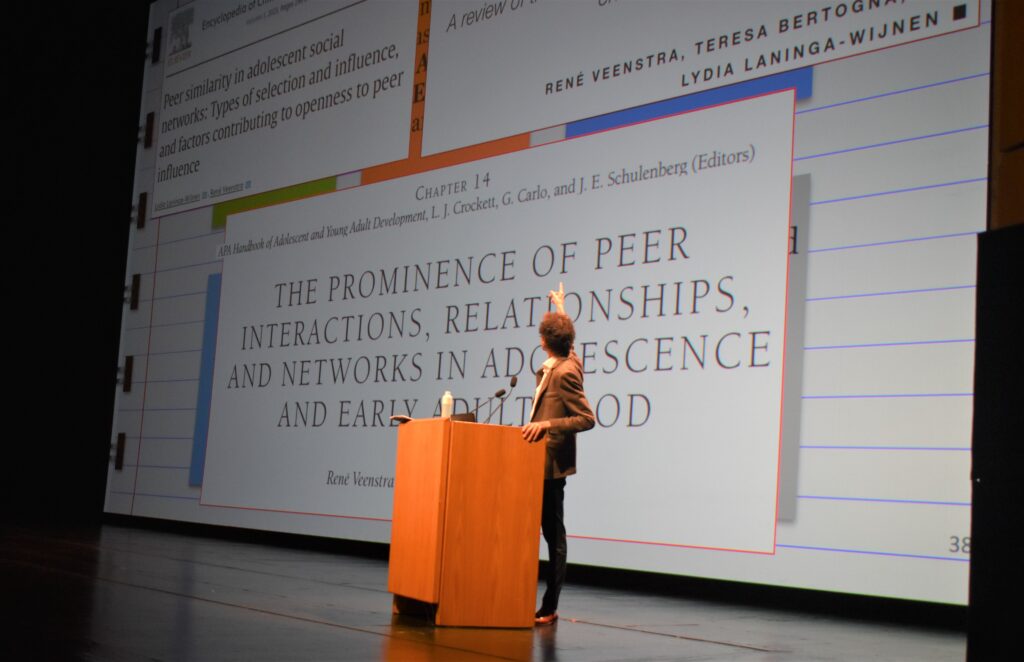
… as a sociologist in 2023
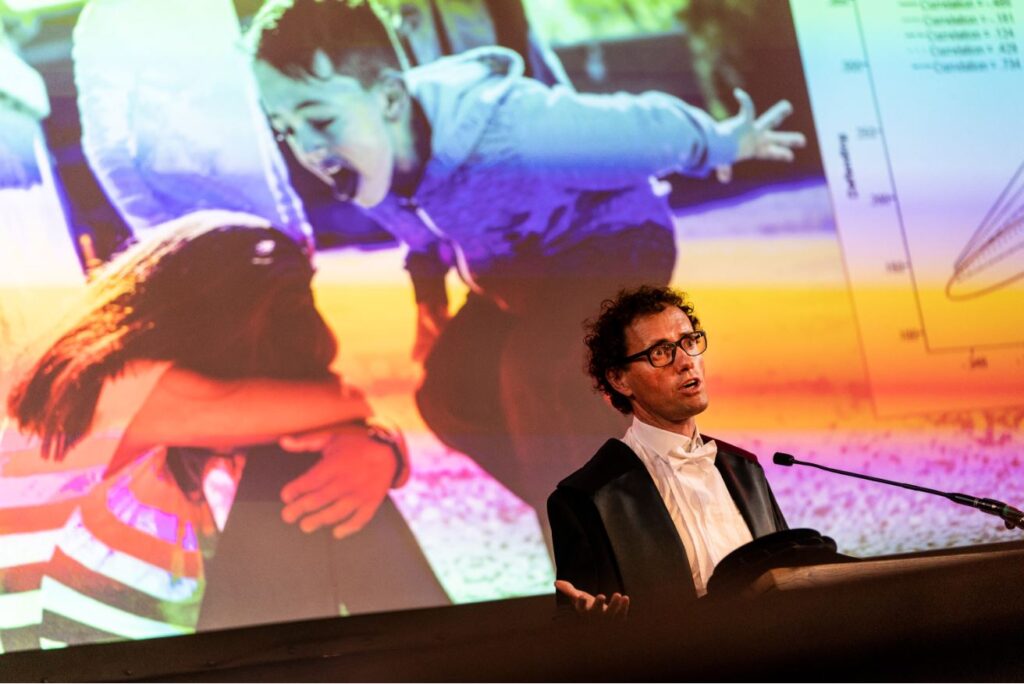
- I contributed a chapter to the book Teen Friendship Networks, Development, and Risky Behavior (edited by Mark Feinberg and Wayne Osgood) and focused on the expansion of longitudinal social network analysis. The chapter provides an overview of important social network datasets and research topics in the field of child and adolescent development.
- Chloe Tolmatcheff has found a position as assistant professor at Radboud University Nijmegen. She published a paper in Prevention Science examining the fidelity and quality of teachers implementing an anti-bullying intervention. Higher teacher fidelity and quality reduced student moral disengagement and bullying. High teacher quality made intervention fidelity less important, but when teacher quality was low, higher fidelity could compensate.
- Simon Venema finished his dissertation. He published an article in Crime & Delinquency that draws on data collected by Paul Nieuwbeerta and Anja Dirkzwager’s Prison Project. This article examines the importance of the post-incarceration family context in relation to recidivism.
- Friends rarely get credit for good deeds and optimal outcomes. For too long, scholars have allowed a focus on the origins of problem behavior to obscure peer processes that are sources of adjustment, happiness, and flourishing. In this article in Child Development Perspectives, Brett Laursen and I focus on peer influence as the key to understanding positive outcomes.
- Zhe Dong’s first paper in the Journal of Youth and Adolescence revealed that positive leaders excel in building relationships, while negative leaders use aggression to achieve personal goals. Her second paper in the Journal of Youth and Adolescence showed that negative leaders harm classroom well-being, while positive leaders also present challenges, especially for female victims, who face lower self-esteem and increased depressive symptoms, highlighting the healthy context paradox.
- Social relationships between ingroup and outgroup members have been theorized to reduce individual prejudice. This PEAR collaboration with Cassie McMillan, published in Social Science Research, examined whether friendships between adolescents of different sexualities can shape individuals’ homophobic attitudes. The findings suggest that heterosexual adolescents with sexual minority friends report less homophobic attitudes, influenced more by gender (6.4% of heterosexual girls’ friendships are with sexual minority peers, versus 3.5% for heterosexual boys) than by the friendships themselves.
- The second paper of Xingna Qin’s dissertation was published in Child Development. Having vulnerable friends can help and hurt vulnerable adolescents. The findings present an interesting paradox—when victims are friends with other victims, they feel less depressed but are more likely to be the target of further victimization.
- Sanne Kellij has defended her dissertation. Her dissertation includes this paper in Development and Psychopathology. She disentangled within- and between-person associations in the interplay between adolescents’ reports of peer victimization and rejection sensitivity.
- Charlotte Vrijen’s preregistered (https://osf.io/s52qr) TRAILS paper in Development and Psychopathology, in which she presents a method that combines heritability information from twin studies and molecular genetic studies to assess the extent of genetic confounding: the causal links between bullying victimization and internalizing problems and between bullying perpetration and externalizing problems are likely to be weaker than often assumed.
- This year was the 85th anniversary of the sociology department. One of the speakers was Lyanne Levy, my co-author of an article on sexual street harassment in Mens en Maatschappij. The highlight of the event was Arie Glebbeek‘s farewell lecture. Wietske Westra made a creative summary of this anniversary. We also happily celebrated the 17th anniversary of my research group, WALM, as it approaches adulthood. Front row: Zhe Dong, Xingna Qin, Gerine Lodder, and Sanne Kellij. Middle row: Jaap Nieuwenhuis, Elsje de Vries, Fenna van der Wijk, Wouter Kiekens, Chloé Tolmatcheff, and Danelien van Aalst. Back row: Jelle Sijtsema, Miranda Sentse, Tina Kretschmer, Kim Pattiselanno, Anke Munniksma, Jan Kornelis Dijkstra, René Veenstra, Ashwin Rambaran, Chaim la Roi, Marianne Hooijsma, Maaike Engels, and Mariola Gremmen.
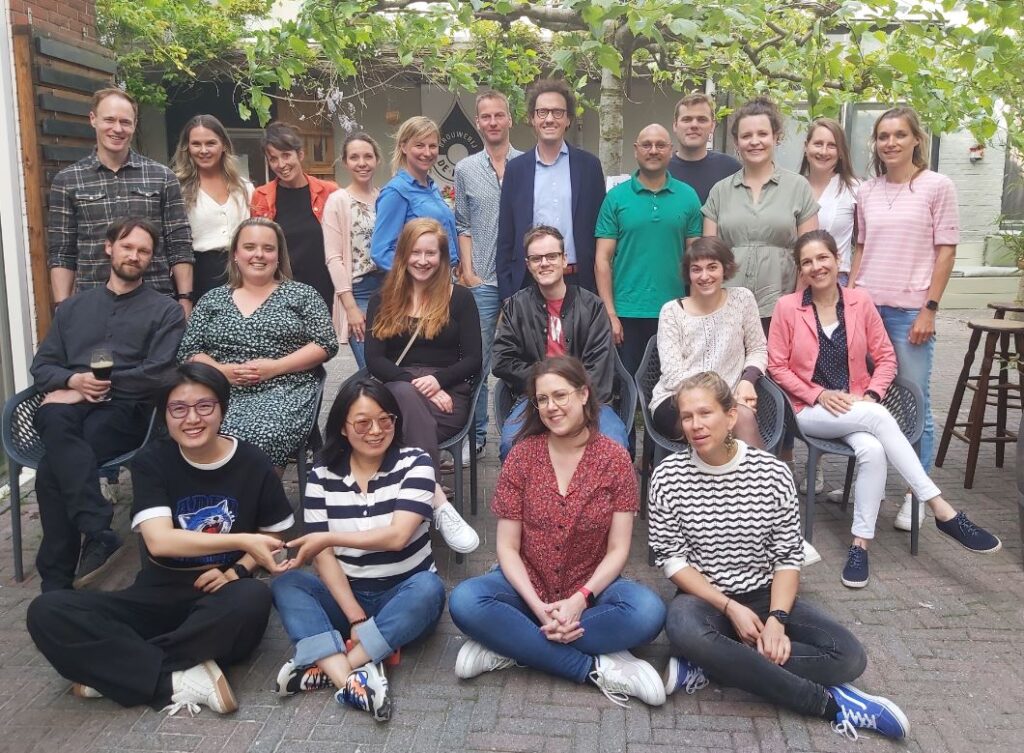
… as a sociologist in 2022


- Thrilled that our GUTS program is funded by the Ministry of Science with 22 million euros. Eight universities in the Netherlands, and 19 amazing scientists in a consortium with a common mission. This 10-year program has the ambition to examine and optimize the opportunities of growing up together in society. Our consortium paper appeared in Developmental Cognitive Neuroscience.
- Gerine Lodder and I edited a special issue (with 10 articles) of the International Journal of Behavioral Development on social norms and presented a conceptual framework for how classroom norms may explain children’s decisions to defend others or refrain from defending, with norm conformity, pluralistic ignorance, and power balance as potential micro-level mechanisms.
- Wouter Kiekens defended his dissertation entitled Sexual and Gender Minority Youth’s Mental Health and Substance Use, in September. In 2022 he published a daily diary study in Social Science & Medicine. Daily experiences of concealment and prejudice events were associated with daily alcohol use and these associations varied by the sex assigned at birth and gender identity. His paper on the development and validation of the Sexual Minority Adolescent Rejection Sensitivity Scale appeared in the Archives of Sexual Behavior.
- Danelien van Aalst defended her dissertation entitled Elements Contributing to Teachers’ Role in Bullying, in June. Her systematic review in the International Journal of Bullying Prevention examined primary school teachers’ characteristics and behaviors in addressing bullying. Another paper in the same journal highlighted the complex dynamics affecting teachers’ intervention, including their attitudes, seriousness toward bullying, and attributions of its causes.
- An intervention study by Chloé Tolmatcheff in Child Development on moral disengagement and social norms as promising components of anti-bullying programs. Provides methodological guidelines for evaluating anti-bullying components targeting specific bullying processes to determine their potential and design programs with the best cost-effectiveness ratio.
- Diego Palacios disentangled dyadic (avoidance of classmates perceived as aggressive) and reputational (attraction to prosocial or popular reputations) perceptions, in a paper in Social Development.
- The first paper of Sanne Kellij’s dissertation project is published in Adolescent Research Review. A systematic review of 142 (!) articles on the social cognitions of victims of bullying.
- Dori Kisfalusi examined the mechanisms underlying the co-development of dislike and bullying relationships, in Social Development. Children’s antipathies and bullying behavior toward schoolmates influenced and reinforced each other over time.
- Marthe de Roo started with this in Social Development articles as ReMa student. She wrote a systematic review on internalizing and externalizing correlates of parental overprotection in the Socialization course of Tina Kretschmer and me. Later she added a meta-analysis on the findings of the 29 EMBU studies. Overprotection is positively associated with maladjustment in offspring.
- Co-production with Berna Güroğlu for the Merrill-Palmer Quarterly special issue (edited by Amanda Rose and Bill Bukowski) on future directions in the study of peer relations. This special issue was based on the Peer Nation conference in Montreal in 2019.
… as a sociologist in 2021
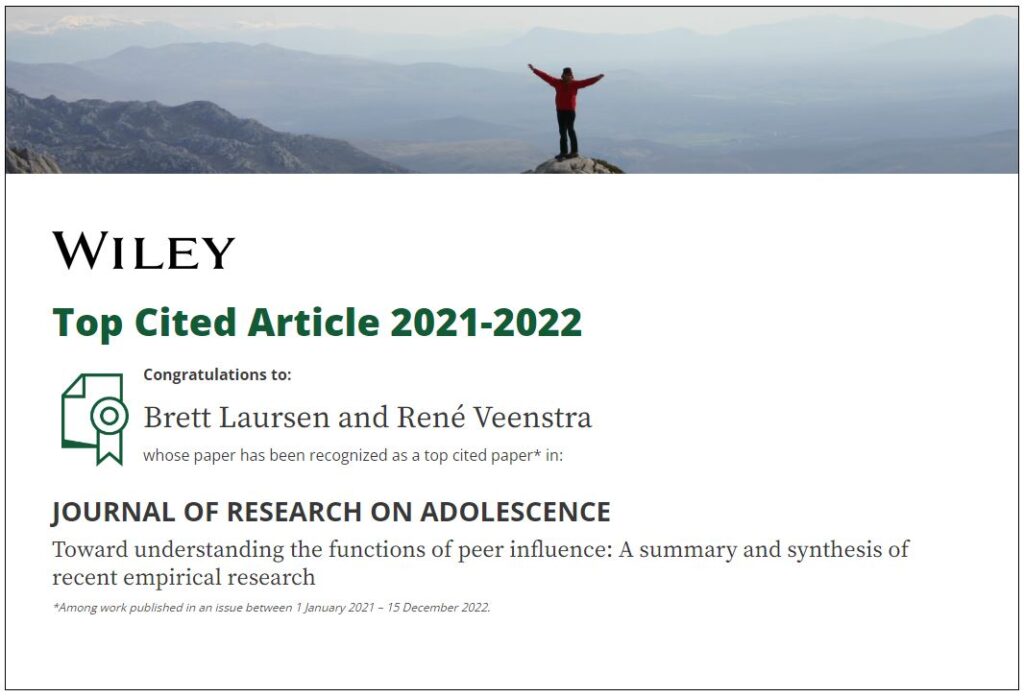
- Lydia Laninga-Wijnen received an NWO Rubicon grant for her project Being defended in bullying situations: When does this really help victims? Together with Lydia, I wrote a Current Opinion paper showing that research is needed to unpack different mechanisms underlying peer selection and influence. Such research can deepen social network theories and maximize the potential effectiveness of social network interventions.
- Social network research is the way to examine bullying as a group process. This co-production with Gijs Huitsing is one of the 74 chapters in the Wiley Blackwell Handbook of Bullying. It focuses on both cross-sectional and longitudinal network studies. Further research is needed on whether and how network interventions can target individuals, relationships, or the entire network structure.
- Wonderful collaboration with Brett Laursen on factors that make adolescence a period of particular vulnerability to peer influence for the Decade in Review special issue of the Journal of Research on Adolescence (edited by Noel Card, Gus Carlo, Amanda Morris, and Christina Salmivalli), in which we introduce the influence-compatibility model.
- PEAR Collaboration with Cassie McMillan and Derek Kreager led to a paper in Social Networks. The dating network in high school is characterized by a chain-like, spanning tree structure. Adolescents follow a norm that discourages dating friends’ former romantic partners, which in turn shapes the structure of the adolescent dating network.
- With Laura Baams as PI, I received an NRO grant for our project Out in School how teacher practices and school policies mitigate sexual orientation and gender identity/expression disparities in school safety and experiences with violence and bullying-victimization.
- A systematic review by Simon Venema on paternal imprisonment and father–child relationships, published in Criminal Justice and Behavior: Pre-prison relationships, frequency and experience of father–child contact, the caregiver’s role in father–child contact, and prison barriers shape father–child relationships and children’s experience of paternal imprisonment.
- Great article by Elsje de Vries in the Journal of Youth and Adolescence: The relative social position of bullying and victimization trajectories are already determined at the beginning of secondary school and do not change over time.
- Paper by Danelien van Aalst (part of my NWO VICI project) in the European Journal of Developmental Psychology: The better the relationship with the teacher the higher the self-esteem of non-bullies and the lower the self-esteem of bullies. Bullies had the lowest self-esteem when they had an efficacious teacher.
- First article by Sofie Lorijn, published in the Journal of Youth and Adolescence: Parental acceptance in preadolescence related to higher and peer rejection related to lower levels of education 11 years later.
- Article in Research on Child and Adolescent Psychopathology by Xingna Qin. Academic success, greater parental autonomy support, and less psychological control are associated with fewer depressive symptoms in Chinese adolescents.
… as a sociologist in 2020

- Fun to give a new course: Primary Social Order, with lectures on reciprocity, social capital, and the public realm. I presented sociology as the we-science (see also my favorite book of 2019). Not only several articles but also some documentaries were part of the course material.
- The analyses were complex, but Gijs Huitsing, Gerine Lodder, and colleagues succeeded: the KiVa NL evaluation paper was published in Prevention Science. See also our codebook. And congratulations to Gijs for winning the Alberti Center Early Career Award.
- Proud that Lydia Laninga-Wijnen defended her Ph.D. and won the EARA Young Scholar Award 2020. This year I co-authored chapters with her for the Handbook of Adolescent and Young Adult Development and the Encyclopedia of Child and Adolescent Health.
- Proud that Tessa Kaufman, Marianne Hooijsma, and Diego Palacios successfully defended their dissertations and found positions as an assistant professor at Utrecht University, a researcher at the Netherlands Youth Institute, and as a researcher in Chile (and all three had their first child as well).
- Wonderful paper by Ruta Savickaite on friendships, perceived popularity, and adolescent romantic relationship debut in the Journal of Early Adolescence.
- Great papers by Wouter Kiekens (on health disparities between heterosexual and LGB adolescents) and by Chaim la Roi (on peers and homophobic attitudes) in the Journal of Youth and Adolescence.
- Excellent paper by Eleonora Marucci in Social Development on halo and association effects. On cognitive biases in teacher attunement to peer-nominated bullies, victims, and prosocial students.
- Great papers by Ashwin Rambaran in Child Development (on bullying as a group process) and Journal of Educational Psychology (on stability and change in student classroom composition and its impact on peer victimization).
- A wonderful collaboration with Jenna Watling Neal resulted in a systematic review, published in Developmental Review, on network selection and influence effects on children’s and adolescents’ internalizing behavior and peer victimization.
- The research evaluation of Sociology in the Netherlands went very well: absolute excellence and societal relevance.
… as a sociologist in 2019
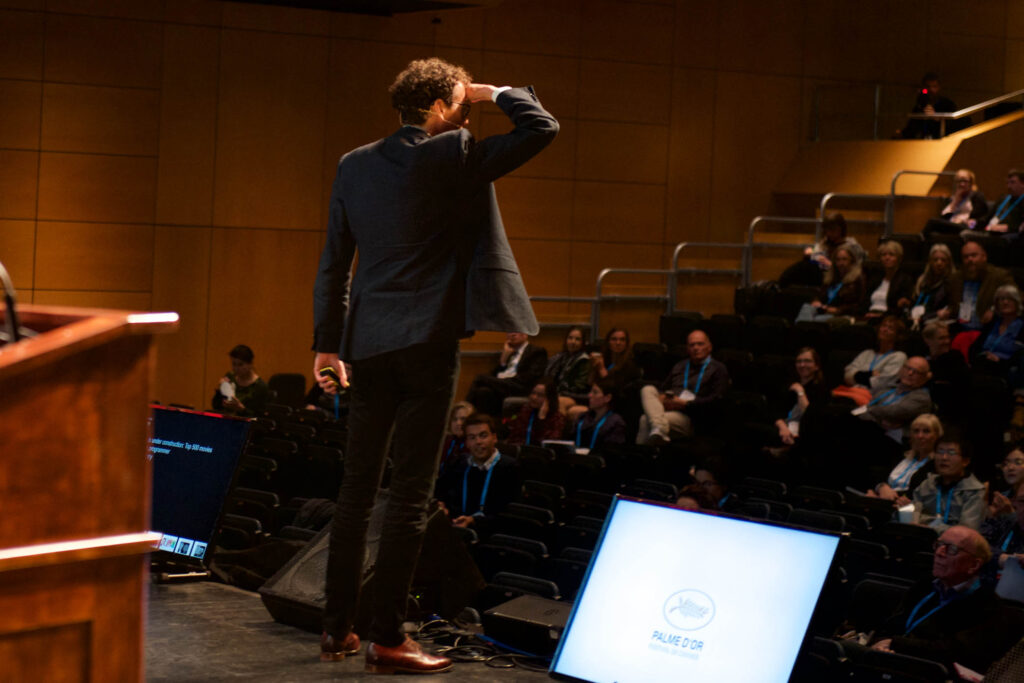
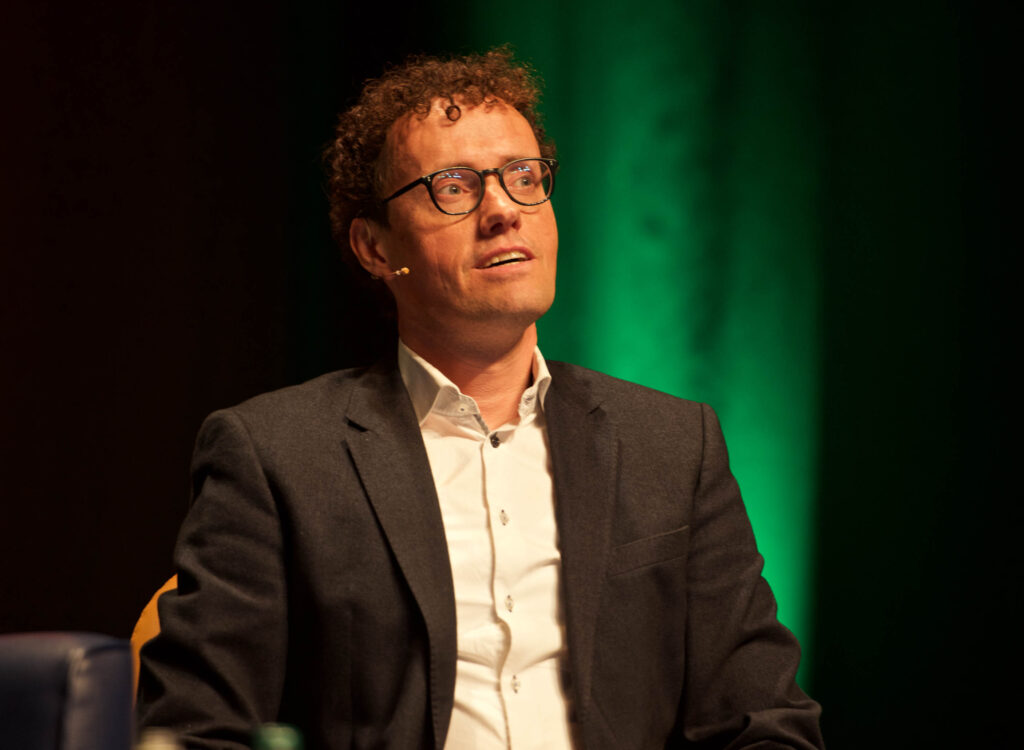
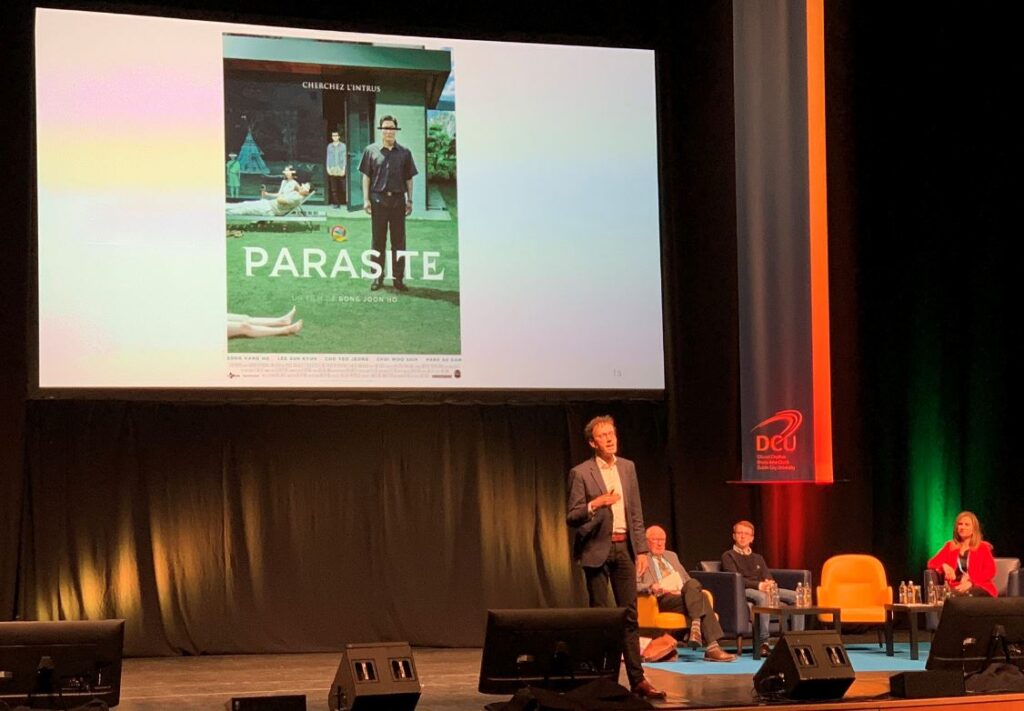
- Honored to have given a keynote address at the World Anti-Bullying Forum and to have been appointed as a member of the Royal Holland Society of Sciences and Humanities. The keynote was published in a book called Always Take Action.
- Proud of this Social Networks paper with Rozemarijn van der Ploeg and Christian Steglich, entitled ‘The Way Bullying Works: How New Ties Facilitate the Mutual Reinforcement of Status and Bullying in Elementary Schools.’
- Wonderful that Maaike Engels received an NRO postdoctoral fellowship for her project ‘Bridging the Gap: The Role of Teachers in the Transition from Primary to Secondary Education.’
- Great that we could have Lydia-Laninga-Wijnen as a postdoc for our project on SterkWerk (Meaningful Roles). She published this year in Child Development and Developmental Psychology.
- Proud of Diego Palacios and Marianne Hooijsma, who both published two longitudinal social network papers.
- Together with Lienja van Eijkern and Roisin Downes, I contributed to a large Ministry of Justice project on domestic violence (led by Annemarie ten Boom).
- Proud that Gert Stulp and Anne Beaulieu made our new minor Data Wise: Data Science in Society immediately a success.
- Great paper by Loes van Rijsewijk in the Journal of Research on Adolescence, entitled ‘The interplay between adolescents’ friendships and the exchange of help: A longitudinal multiplex social network study.’
- Proud that Chaim la Roi and Ashwin Rambaran successfully defended their Ph.D. theses and are doing their postdocs in Stockholm and Ann Arbor.
- Great papers by Tessa Kaufman in Development and Psychopathology and the Journal of Research on Adolescence.
… as a sociologist in 2018
- Sociology Groningen is alive & kicking. The educational evaluation went very well in 2018. In October we celebrated our 80th anniversary. Watch the (subtitled) movies and Dutch presentations here.
- Proud of this Prevention Science article: WHY DOES A UNIVERSAL ANTI-BULLYING PROGRAM NOT HELP ALL CHILDREN? Results call for tailored intervention strategies to reduce victimization for more children.
- Gijs Huitsing received an NRO grant to develop and evaluate an anti-bullying program for secondary education. Annelies Kassenberg received a grant to investigate how parents and teachers can work together to combat bullying.
- Proud of this article in the Journal of Child and Family Studies on the HEALTHY CONTEXT PARADOX. More depressive symptoms and lowerself-esteem for victims of bullying in a context where others are no longer bullied.
- KNOWLEDGE CLIP: Wonderful that a clear animation explains the findings of our NRO project on WHAT WORKS AGAINST BULLYING (unfortunately without English subtitles)
- Gerine Lodder wins the Science for Society Award and receives a VENI grant. Both very well deserved. Watch her TEDx Groningen talk
- The ICS groups from Groningen and Amsterdam received an NRO grant to investigate how peer relationships in primary school affect school choice, academic performance and social integration in high school
- Proud that Loes van Rijsewijk and Mariola Gremmen successfully defended their Ph.D. theses, both using longitudinal social network analysis.
- Two TRAILS papers with Odilia Laceulle (Self-regulation, negative social interactions, & young adult psychopathology) and Tina Kretschmer (How competent are bullying perpetrators & victims in mastering normative developmental tasks?)
- My trip as visiting professor to Beijing Normal University, where I gave two lectures and a workshop on social network analysis. One student, Xingna Qin, is now working with me as a Ph.D. student, with a grant from the Chinese Scholarship Council.
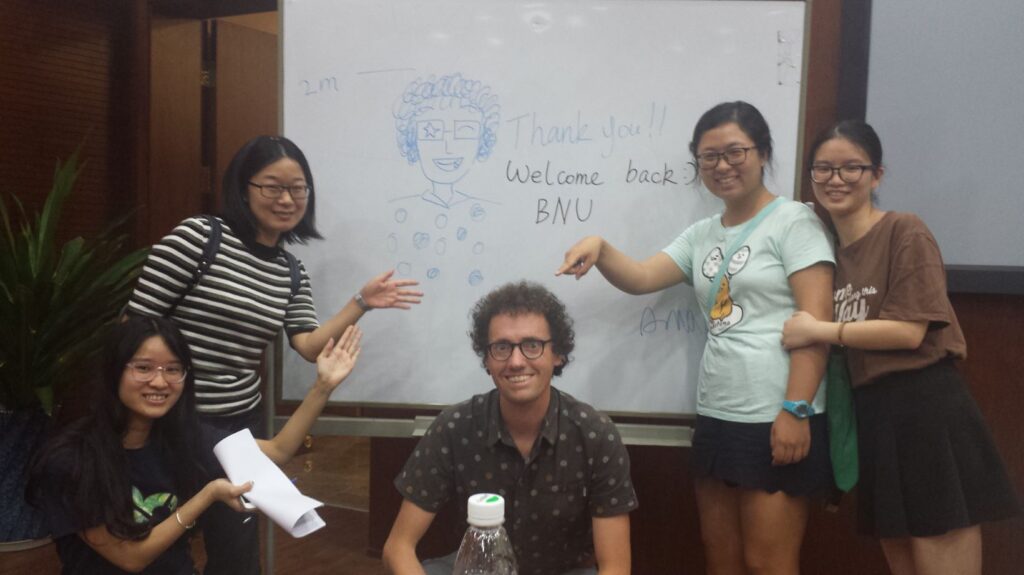
… as a sociologist in 2017
- NWO Gravitation Grant for SCOOP, an initiative of the University of Groningen (Strategic Theme Sustainable Society) and Utrecht University (Institutions for Open Societies), for the interdisciplinary study of sustainable cooperation.
- The ERC Research Starting Grant for Tina Kretschmer for her project “Ghosts from the past: Consequences of adolescent peer experiences across social contexts and generations.”
- The NWO VENI grant for Gijs Huitsing for his project entitled NETWORK INTERVENTIONS IN THE PEER CONTEXT.
- My paper with Tony Volk & Dorothy Espelage: SO YOU WANT TO STUDY BULLYING?, in which we make recommendations for improving the validity, transparency, and compatibility of bullying research.
- Our free online course (in English and Dutch), a MOOC, helps adolescents learn to recognize, prevent, and manage mental health problems.
- The TEDx Groningen talk by Gerine Lodder (postdoc in my NWO VICI project) about LONELINESS IN ADOLESCENCE: “Being able to feel lonely is good. Chronic loneliness is not good.”
- Two great papers on NETWORKS AND SCHOOL BEHAVIOR by Ashwin Rambaran (Academic functioning and peer influences) and Mariola Gremmen (First selection, then influence).
- Tessa Kaufman (Ph.D. student in my NWO VICI project) was selected as a blogger at Faces of Science.
- The first WALM Newsletters of our research group (5 staff, 3 postdocs, 10 graduate students). Great to be with this group in Austin (SRCD), Stockholm (WABF), or Echten (Writing Week).
- New lectures on bullying at the Children’s University. This year in Leeuwarden and Amsterdam. Friesch Dagblad wrote an article about my lecture, titled DE PEST AAN PESTEN.
… as a sociologist in 2016
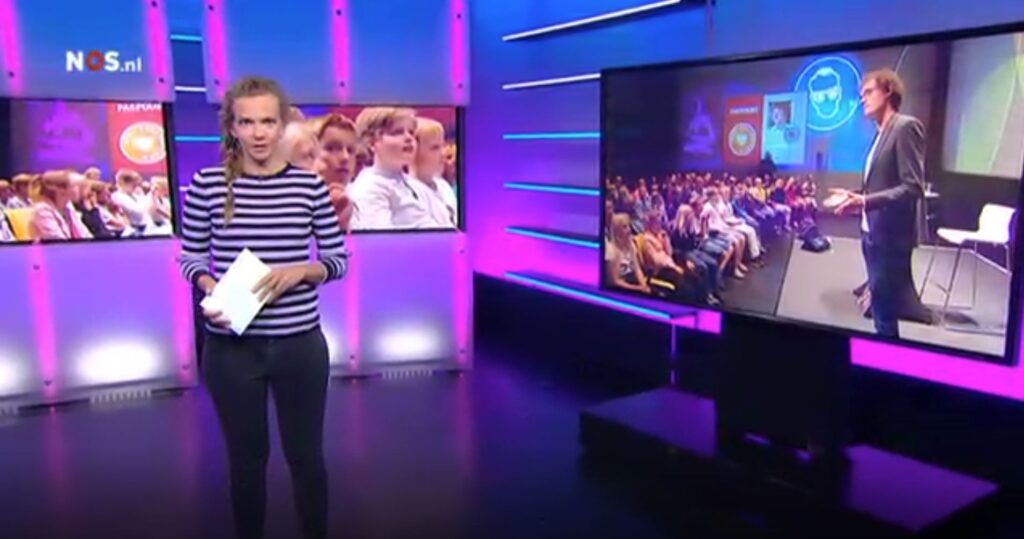
- Lectures on bullying at the Children’s University for groups of 200 children.
- Chapter in Handbook of Peer Interactions, Relationships, and Groups with Jan Kornelis Dijkstra and Derek Kreager, entitled Pathways, networks, and norms: A sociological perspective on peer research.
- Ten thousand TRAILS citations & Tina Kretschmer becoming an assistant professor.
- Two KiVa dissertations: Rozemarijn van der Ploeg and Beau Oldenburg.
- Two SNARE dissertations: Kim Pattiselanno and Aart Franken.
- Campaign BEAU DENKT MEE in the Week against Bullying.
- Developed a course with Gerine Lodder and Gert Stulp for the Research Master.
- Article with Loes van Rijsewijk and Christian Steglich in Developmental Psychology: Who Helps Whom?
- Chapter in the new handbook of Dutch and Flemish sociologists of education.
- Proud of colleague Ben Feringa (Nobel Prize in Chemistry) and, as former draughts player, of student Roel Boomstra (world champion in draughts).
… as a sociologist in 2015

- Proud to obtain a VICI: 2 postdocs and 1 PhD student appointed. Still 2 vacancies.
- Nomination Huibregtsen Prize and participation Evening Science and Society in Ridderzaal.
- Strong contributions of Freek Velthausz to the Antipestclub and of Gijs Huitsing to Het Klokhuis.
- The beautiful series of summer lectures in NRC Next that I was allowed to open.
- Practical article on involving parents in combating bullying in HJK, De wereld van het jonge kind.
- First SNARE article, in Journal of Research in Crime and Delinquency.
- Kiva School works. State Secretary Sander Dekker presented the OnderwijsBewijs final report to the House of Representatives..
- Collaboration UU, VU, RU, RUG and Trimbos for What works against bullying.
- A new professor in sociology: Nardi Steverink.
- Two successful PhD defenses: Britta Rüsschoff en Tinka Veldhuis.
… as a sociologist in 2014
- 2014 is my first year as research director of the ICS and the Department of Sociology. Quite an honor.
- Proud of my PhD student Gijs Huitsing: Beautiful publication in Development and Psychopathology, part of a wonderful dissertation, discussed in de Volkskrant.
- Teachers can support students in countering bullying appears from my article in the Journal of Educational Psychology.
- Article by Marina Verlinden in Psychological Assessment, in which she presents a new instrument to measure bullying in 7-year-olds.
- Anti-bullying programs reviewed by an independent committee in the Netherlands: 9 provisionally approved, 4 improvable; 48 rejected.
- NWO grant to add DNA to longitudinal network research in adolescents. Nice continuation of collaboration with Tina Kretschmer.
- NWO grant for sixth measurement of TRAILS. Still good participation after 13 years: 80% at fifth measurement.
- ISSBD Young Scientist Award for my former PhD student Jelle Sijtsema. Co-winner: Loes Keijsers.
- Article in PLoS ONE byTinka Veldhuis & Dit is de Dag interview: Don’t put terrorists on special ward.
- Article by Michiel Zwaan selected as highlight aggression research. Free download at the International Journal of Behavioral Development.
… as a sociologist in 2013
- 2013 is the year of my inaugural lecture! This culmination as Professor of Sociology was extensively recorded and the lecture was published in Kind en Adolescent.
- Journal of Research on Adolescence special issue on dynamics in networks and behavior.
- NWO grant for SNARE, a project on social networks and social development.
- Committee chaired because of the suicide of the suicide of Fleur Bloemen. Final report contains important recommendations.
- Great article in Personality and Social Psychology Bulletin and prize for best dissertation from the Dutch Sociological Society for Dutch Sociological Society for Tobias Stark.
- X-factor is in the DNA: Article in PLoS ONE by Jan Kornelis Dijkstra, discussed in the UKrant.
- NWO grants for research on role of networks in helping (Loes van Rijsewijk) and romantic relationships (Ruta Savickaite).
- My article in Aggressive Behavior: 8-year-olds are already strategic in bullying.
- KiVa reports in KRO Brandpunt and EénVandaag.
- Plan of action against bullying by State Secretary Sander Dekker and Children’s Ombudsman Marc Dullaert.